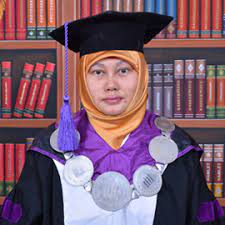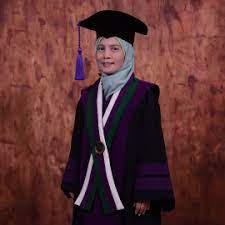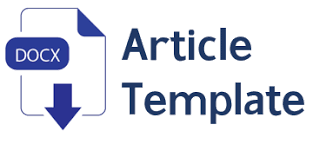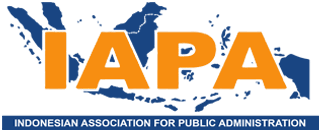EVALUASI TERHADAP KUALITAS LULUSAN MAGISTER ILMU HUKUM AKIBAT KEBIJAKAN PENERIMAAN PESERTA DIDIK NON SARJANA HUKUM
DOI:
https://doi.org/10.30997/jsh.v12i2.4645Keywords:
Evaluation, Quality, Postgraduate Law, MultidisciplinaryAbstract
In the last two decades there has been a paradigm shift where for masters of law can be from non-law graduates, so that the postgraduate education system of law school will have multidisciplinary students input. On the other hand, students who are not from legal studies have limited knowledge of legal principles, theories, concepts, ways of thinking, and do not even know the laws and regulations as the basis for legal research. In particular, normative juridical research requires sharp intuition of the law, which unfortunately for non-law students conducts research that mostly does not touch the substance of the philosophy of legal study. The research questions posed in this paper are: How to improve the quality of Law Graduate Program students with non-law backgrounds? This paper aims to provide solutions to obstacles in quality and effective postgraduate law education both in society and for the development of legal science itself. Furthermore, it is concluded that it is not easy to transform the nature of legal science to non-law students who enter legal education, given the weak understanding of principles, rules, institutions and legal processes. Thus, it is recommended from this study that: 1). Graduates with non-law backgrounds may not be leaders in drafting laws and regulations, especially those working in any government agency, and 2). Postgraduate Law must rearrange the curriculum for students who are not graduates of Law, for example by providing basic matriculation of law within two semesters or stopping multidisciplinary programs altogether.
References
Alanzi, A. A. (2020). The Models of Legal Education: Implication for Saudi Arabia. Journal of Education and e-Learning Research, 7(3), 235-241.
Campbell, R. W. (2016). The end of law schools: Legal education in the Era of legal service businesses. Mississippi Law Journal, 85, 1-25.
Melchionna, L. (2010). Global legal education and comparative visa regulations. Transnational Law & Contemporary Problems. Law Legal Studies Research Paper, St. John's University School.
Schwartz, M. H., Hess, G. F., & Sparrow, S. M. (2014). What The Best Law Teachers Do. Massachusetts: Harvard University Press.
Strevens, C., Grimes, R., & Phillips, E. (2016). Legal education: Simulation in theory and practice. New York: Routledge.
Katz, H. E., & O'Neill, K. F. (2009). Strategies and Techniques of Law School Teaching: A Primer For New (and not so new) Professors. United States: Aspen Publishers, Inc. .
Gane, C., & Guang, R. H. (2017). Legal Education in The Global Context. London: Routledge.
Sultany, N. (2018). Law and Revolution: Constitutionalism After The Arab Spring. London: Oxford constitutional theory.
Sheppard, S. (2007). The History of Legal Education in The United States: Commentaries and Primary Sources. Clark: Lawbook Exchange Limited.
Arnow-Richman, R. (2013). Employment Kaw inside out: Using The Problem Method to Teach Workplace Law. Denver: Saint Louis University Law Journal.
Wilson, R. J. (2004). Training for Justice: The Global Reach of Clinical Legal Education. Penn State International Law Review, 22(3), 421-431.
Duquette, D. N. (1997). Developing a Child Advocacy Law Clinic: A Law School Clinical Legal Education Opportunity. University of Michigan Journal of Law Reform, 31(1), 1-32.
Elizabeth, B. F. (2018). Interactive lecturing: A handbook for college faculty. New Jersey: John Wiley & Sons.
Stuckey, R. T. (2007). Best Practices for Legal Education: A Vision and a Road Map. Philadelphia: Clinical Legal Education Association.
Agustang, A., Mutiara, I. A., & Asrifan, A. (2021). Masalah Pendidikan di Indonesia. p. https://doi.org/10.31219/osf.io/9xs4h.
Mawati, A. T., Permadi, Y. A., Rasinus, R., Simarmata, J., Chamidah, D., Saputro, A. N. C., ... & Prasetya, A. B. (2020). Inovasi Pendidikan: Konsep, Proses dan Strategi. Yayasan Kita Menulis.
Nur, N., Sulistiyono, A., & Roestamy, M. (2020). MODEL PENGEMBANGAN JAMINAN FIDUSIA BAGI PEMILIK HAK CIPTA KARYA MUSIK DAN LAGU SEBAGAI OBJEK JAMINAN UNTUK MENDAPATKAN KREDIT PERBANKAN DI INDONESIA. Jurnal Sosial Humaniora, 11(2), 190-202.
Pratidina, G., Zenju, N. S., & Sastrawan, B. (2020). KEPEMIMPINAN INFORMAL BERBASIS PARTISIPASI MASYARAKAT DALAM MENJAGA KETAHANAN PANGAN LOKAL. Jurnal Sosial Humaniora, 11(1), 98-104.
Roestamy, M., Suhartini, E., & Yumarni, A. (2015). Metode Penelitian Laporan dan Penulisan Karya Ilmiah Hukum Pada Fakultas Hukum. Bogor: Fakultas Hukum Universitas Djuanda.
Roestamy, M. (2015). Metodologi Penelitian Hukum. In M. Roestamy, Bahan Matakuliah MPH. Bogor: UNIDA Press.
Rahmanto, T. Y. (2015). Bantuan Hukum “Pro Bono Publico” Sebagai Alternatif Dalam Pemenuhan Hak Memperoleh Keadilan Di Provinsi Jawa Timur. Jurnal HAM, 6(2), 119.
Rahardjo, S. (1976). KLINIK HUKUM: SEBUAH PENDEKATAN PRAKTIS. Jurnal Hukum & Pembangunan, 6(6), 441-447.
Alperi, M. (2020). Peran Bahan Ajar Digital Sigil Dalam Mempersiapkan Kemandirian Belajar Peserta Didik. Jurnal Teknodik, 1(1), 99-110.
Kusumaatmadja, M. (2017). Pendidikan Hukum di Indonesia. Jurnal Hukum & Pembangunan, 24(6), 491-501.
Downloads
Published
How to Cite
Issue
Section
License
Copyright (c) 2021 Jurnal Sosial Humaniora

This work is licensed under a Creative Commons Attribution-ShareAlike 4.0 International License.
Authors submitting manuscripts must understand and agree to copyright the manuscript of the article was transferred to OJS Djuanda University. All rights reserved. The copyright release statement for the Journal of Social Humanities is set out in the Agreement Transfer of Copyright. This work is licensed under Creative Commons Attribution-ShareAlike (CC BY-SA) version 4.0 where Author and Readers can copy and redistribute material in any media or format , as well as mixing, modifying and building materials for any purpose, but they must provide appropriate credit (citing articles or content), provides a link to the license, and indicates when changes have been made. If you mix, modify, or develop, the materials you have to distribute your contributions are under the same license as the originals.
















